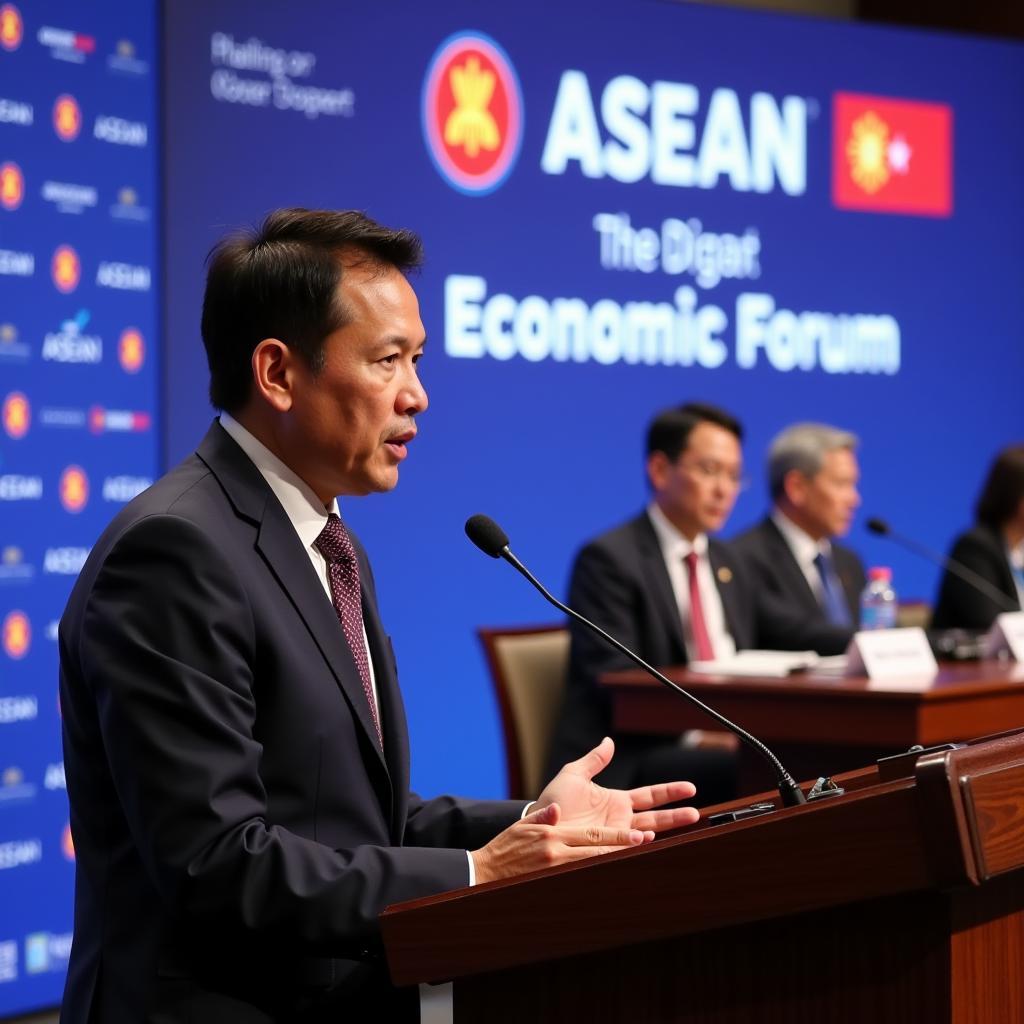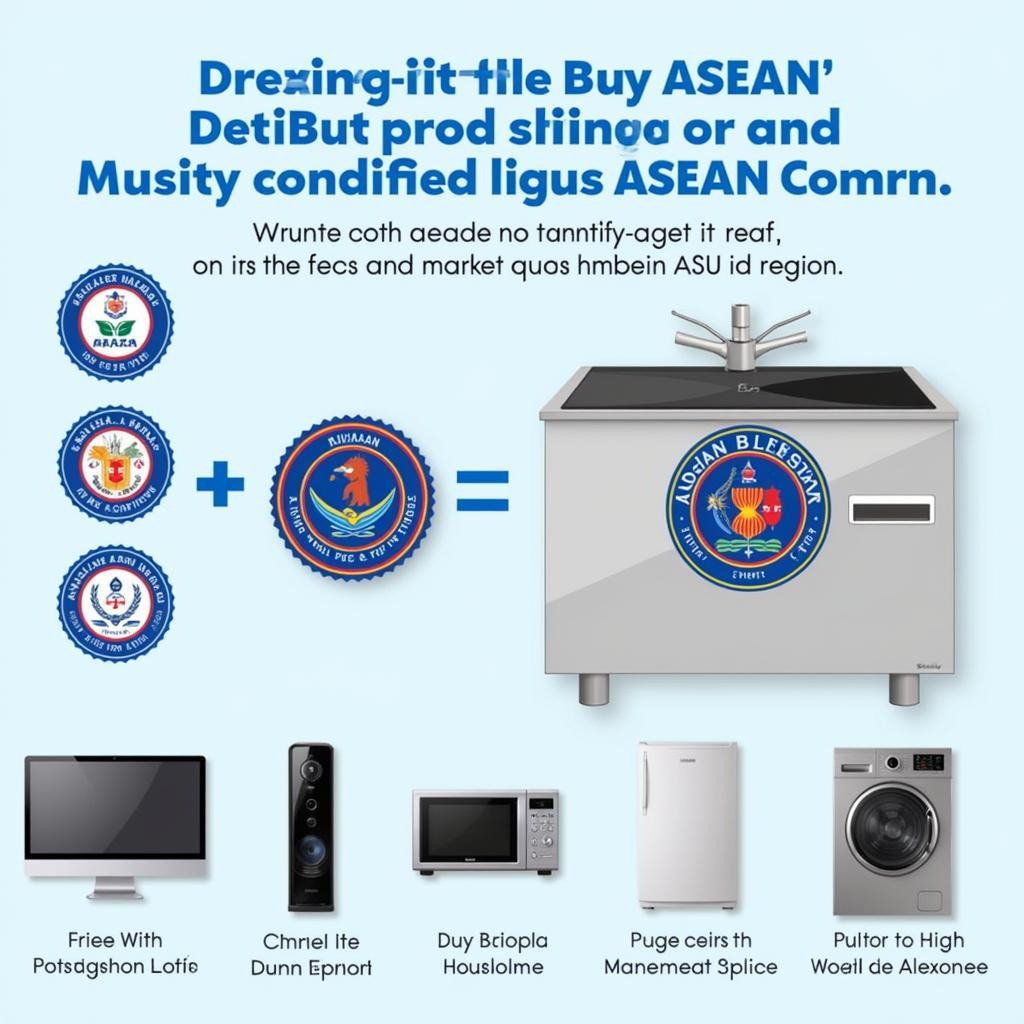The Philippines, under President Ferdinand Marcos Jr., plays a crucial role in the evolving dynamics of ASEAN. This article explores the intersection of “Asean And Marcos,” examining the country’s foreign policy, economic priorities, and socio-cultural contributions within the Southeast Asian bloc.
Marcos Jr.’s Foreign Policy and ASEAN: A Balancing Act
The Marcos administration has inherited a complex geopolitical landscape. Navigating relations with major powers like the United States and China requires a delicate balancing act. This is particularly relevant within ASEAN, where differing views on the South China Sea and other regional security issues often create friction. Marcos Jr.’s approach seems to favor maintaining strong ties with both Washington and Beijing, emphasizing economic cooperation and downplaying contentious issues. This strategic ambiguity reflects the Philippines’ desire to maximize benefits from both sides while safeguarding its national interests. Maintaining this balance within ASEAN requires skillful diplomacy and careful consideration of the bloc’s collective stance.
Economic Priorities and Regional Integration: Driving Growth Through ASEAN
Economic growth is a central pillar of the Marcos administration’s agenda. ASEAN provides a vital platform for achieving this goal through increased trade, investment, and economic integration. The Regional Comprehensive Economic Partnership (RCEP), which the Philippines ratified under Marcos Jr., is expected to boost trade and attract foreign investment. Furthermore, the administration is focusing on developing key sectors like agriculture, tourism, and infrastructure, leveraging ASEAN’s interconnectedness to expand markets and attract expertise. By actively participating in ASEAN economic initiatives, the Philippines aims to enhance its competitiveness and secure its place in the global supply chain.
Socio-Cultural Contributions: The Philippines’ Soft Power within ASEAN
Beyond political and economic considerations, the Philippines contributes significantly to ASEAN’s socio-cultural fabric. The country’s vibrant culture, rich history, and artistic expressions are celebrated throughout the region. People-to-people exchanges, educational collaborations, and cultural festivals foster a sense of shared identity and understanding among ASEAN members. Marcos Jr.’s emphasis on promoting Filipino culture on the global stage also strengthens the country’s soft power within ASEAN, enhancing its influence and fostering closer ties with its neighbors.
Addressing Challenges: Navigating Complexities within the Bloc
While ASEAN presents numerous opportunities, the Philippines also faces challenges within the bloc. The South China Sea dispute remains a sensitive issue, requiring careful management to avoid escalating tensions. Other challenges include tackling transnational crime, addressing climate change, and promoting sustainable development. The Marcos administration must work closely with its ASEAN partners to find common ground and develop effective solutions to these complex issues.
What is the Philippines’ stance on the South China Sea dispute within ASEAN?
The Philippines continues to assert its sovereign rights in the South China Sea while advocating for a peaceful resolution through international law and diplomatic dialogue within the ASEAN framework.
How is the Marcos administration leveraging ASEAN for economic development?
The administration is prioritizing regional economic integration through RCEP, focusing on key sectors, and attracting foreign investment to stimulate economic growth.
 Philippines' Participation in an ASEAN Economic Forum
Philippines' Participation in an ASEAN Economic Forum
Conclusion: ASEAN and Marcos – A Future of Collaboration
The relationship between ASEAN and the Philippines under President Marcos Jr. is marked by both opportunities and challenges. By prioritizing economic integration, engaging in skillful diplomacy, and leveraging its cultural influence, the Philippines is positioned to play a significant role in shaping the future of ASEAN. Successfully navigating the complexities of regional dynamics will be crucial for the country’s continued growth and prosperity within the Southeast Asian community.
FAQ
- What is the main focus of Marcos Jr.’s foreign policy within ASEAN? Balancing relationships with major powers and promoting regional stability.
- How does ASEAN contribute to the Philippines’ economic growth? Through increased trade, investment, and economic integration opportunities.
- What are some of the challenges the Philippines faces within ASEAN? The South China Sea dispute, transnational crime, and climate change.
- What is the significance of RCEP for the Philippines? It is expected to boost trade and attract foreign investment.
- How does the Philippines contribute to ASEAN’s socio-cultural landscape? Through cultural exchanges, artistic performances, and promoting Filipino heritage.
- What role does the Philippines play in ASEAN’s security architecture? It participates in joint military exercises and promotes dialogue on regional security issues.
- How does the Marcos administration aim to strengthen the Philippines’ position within ASEAN? By actively participating in ASEAN initiatives, promoting economic growth, and engaging in diplomatic efforts.
Further Reading:
- Explore other articles on ASEAN’s economic outlook on our website.
- Learn more about the Philippines’ cultural diplomacy in Southeast Asia.
Need Support? Contact us 24/7:
Phone: 0369020373
Email: [email protected]
Address: Thon Ngoc Lien, Hiep Hoa, Bac Giang, Vietnam.
